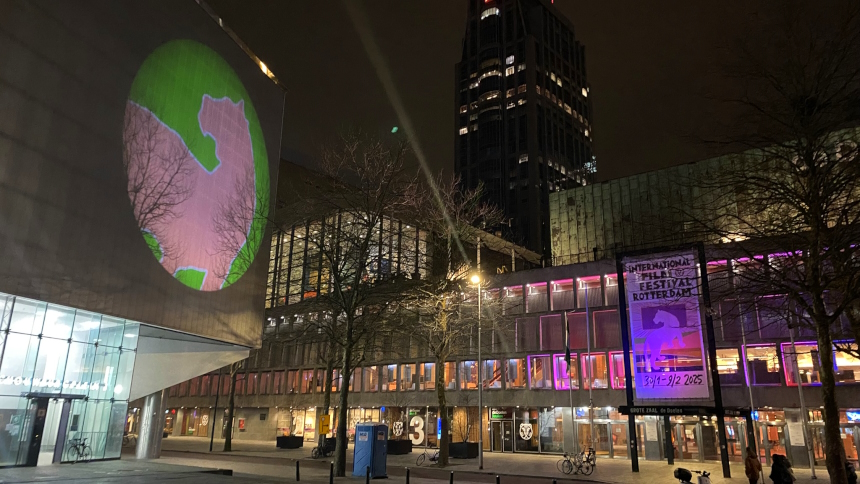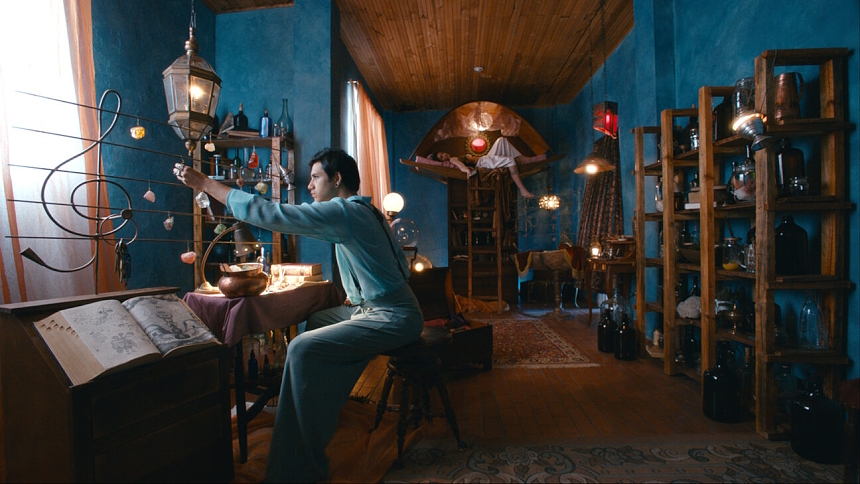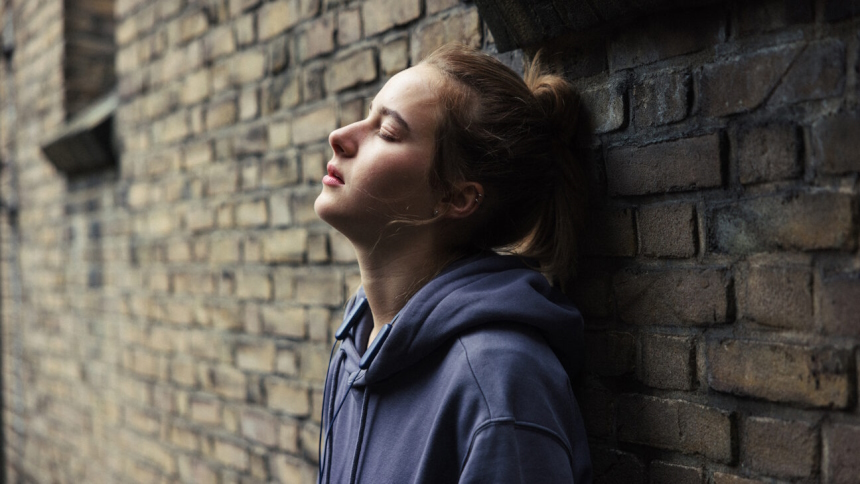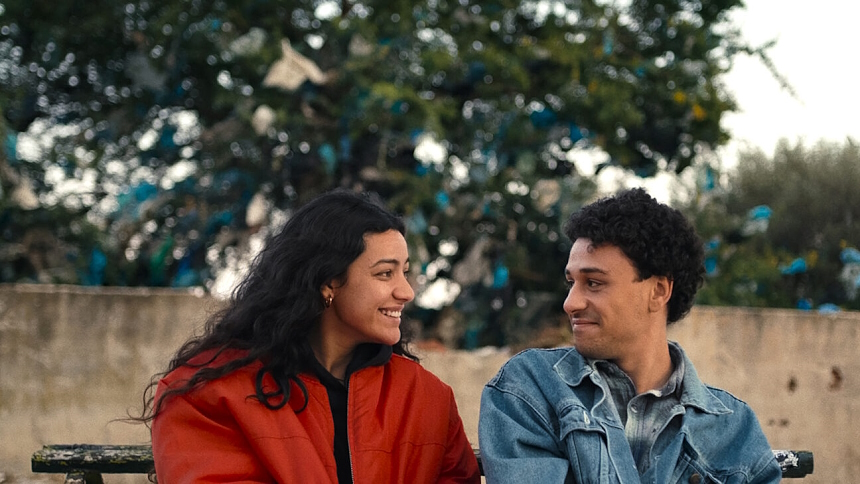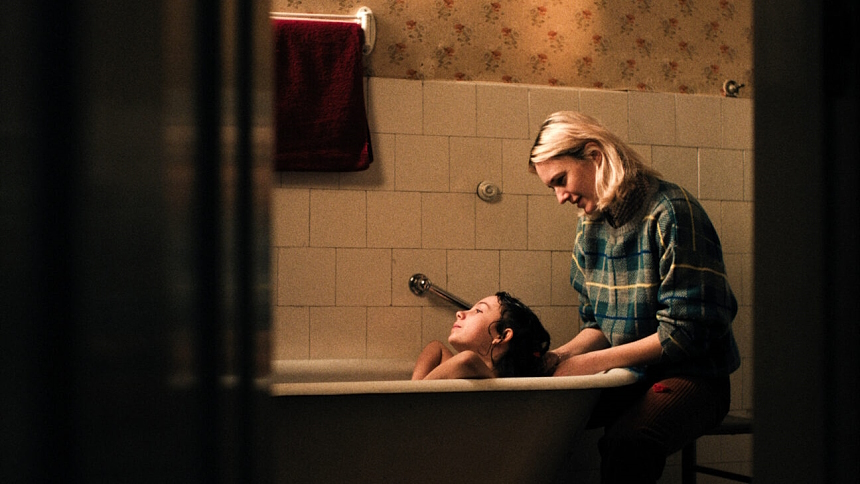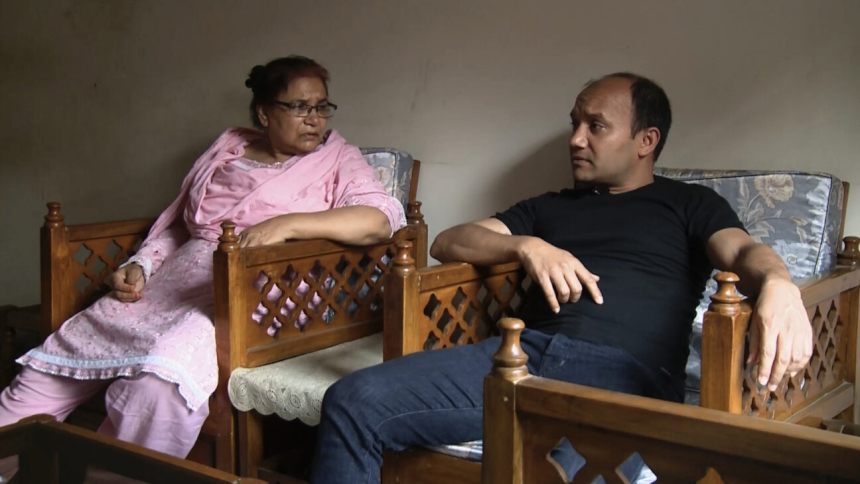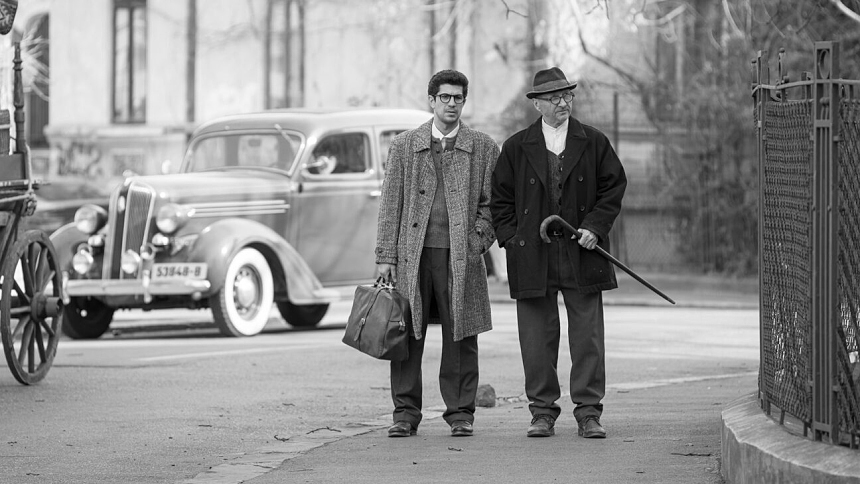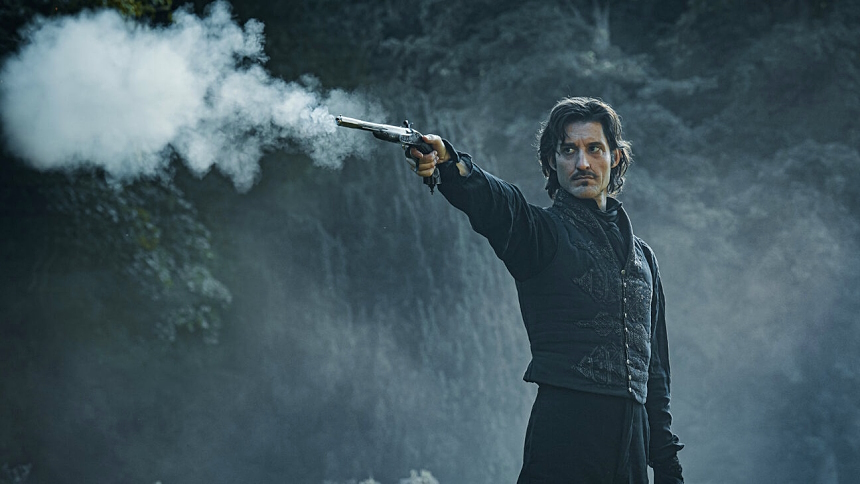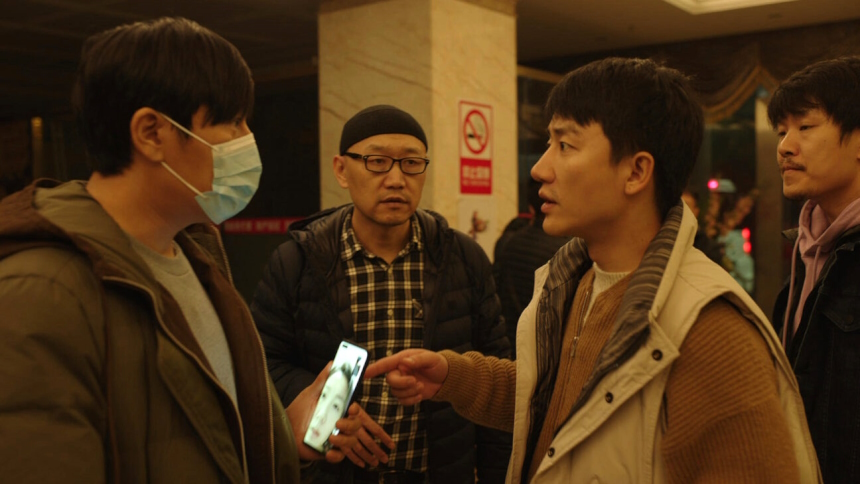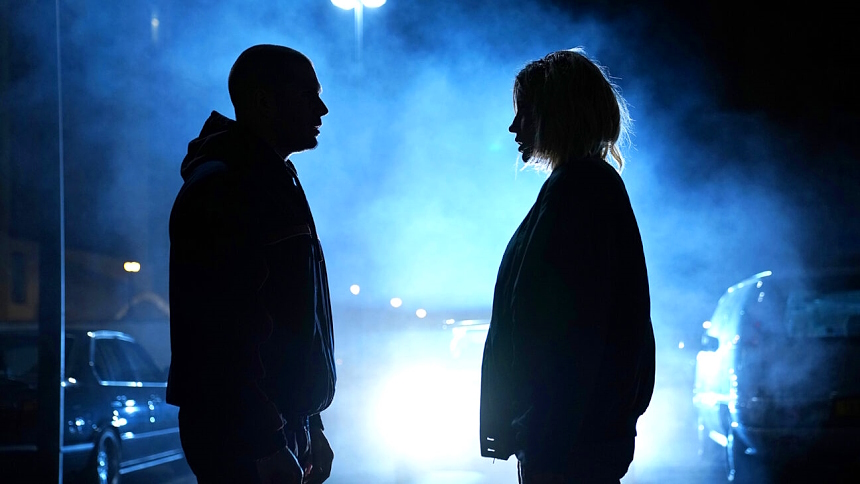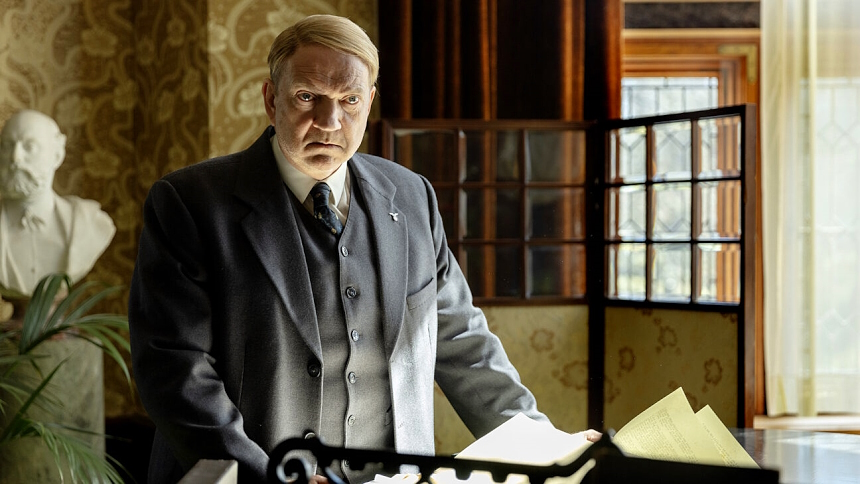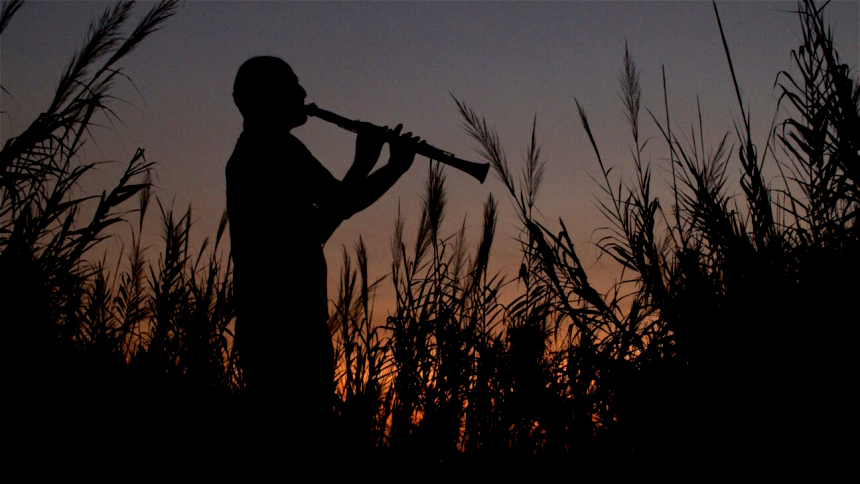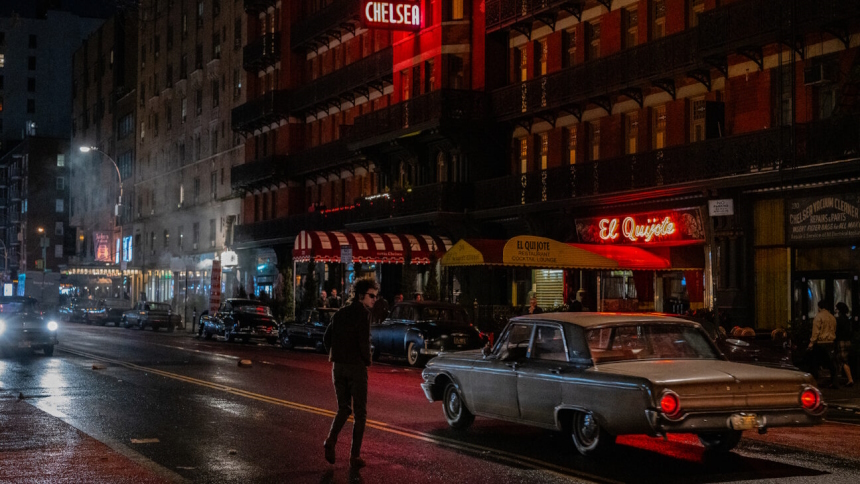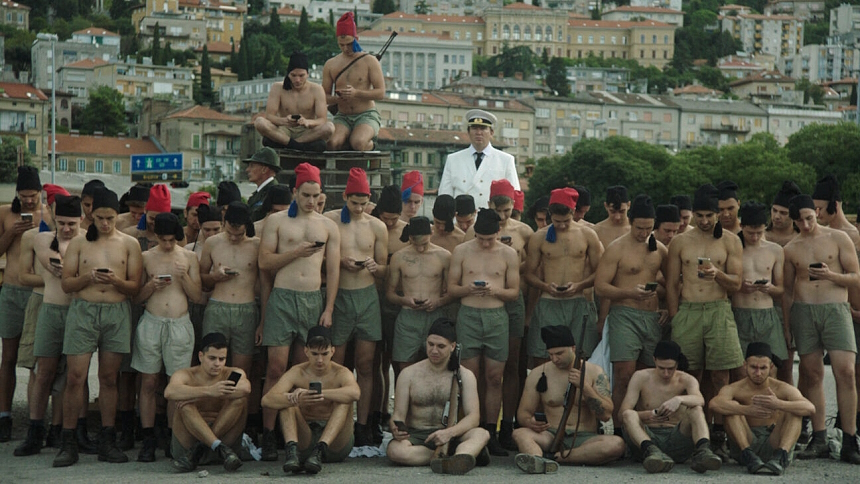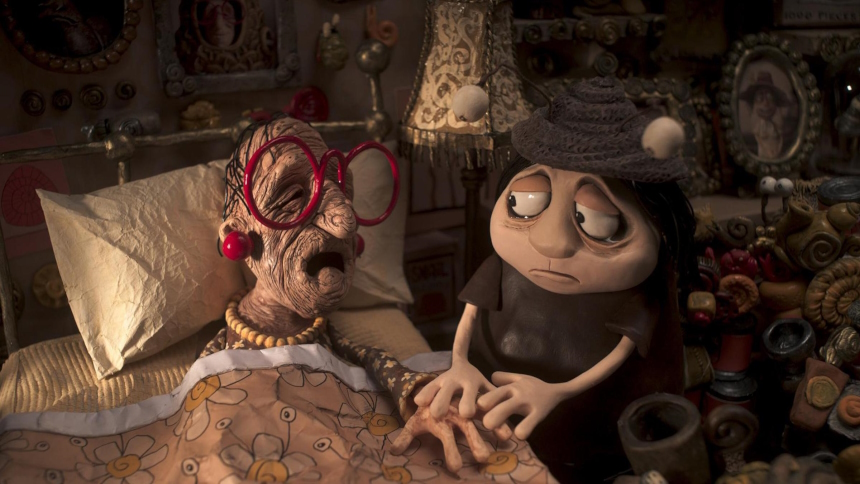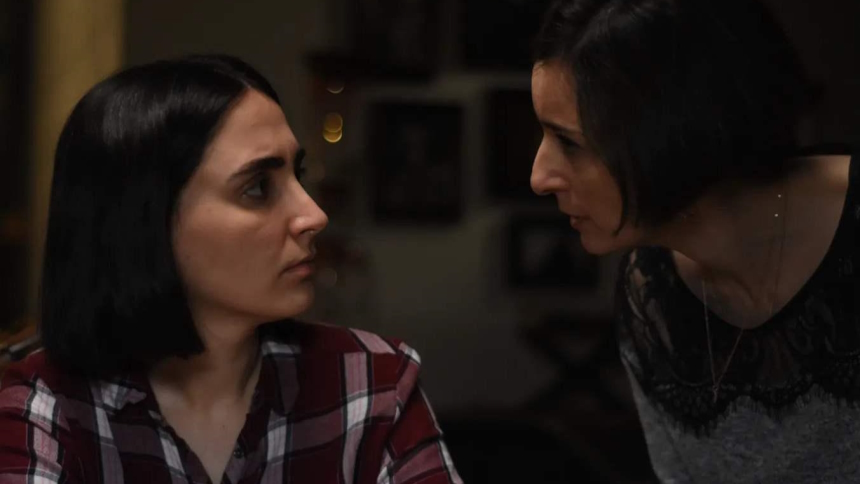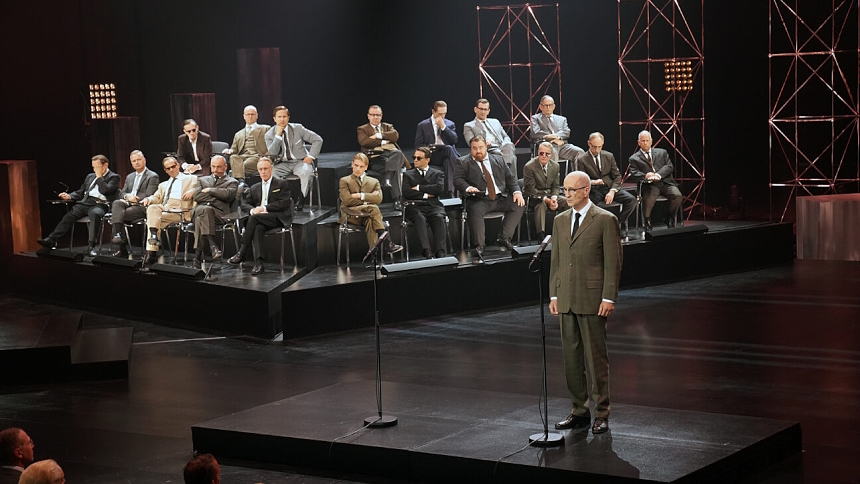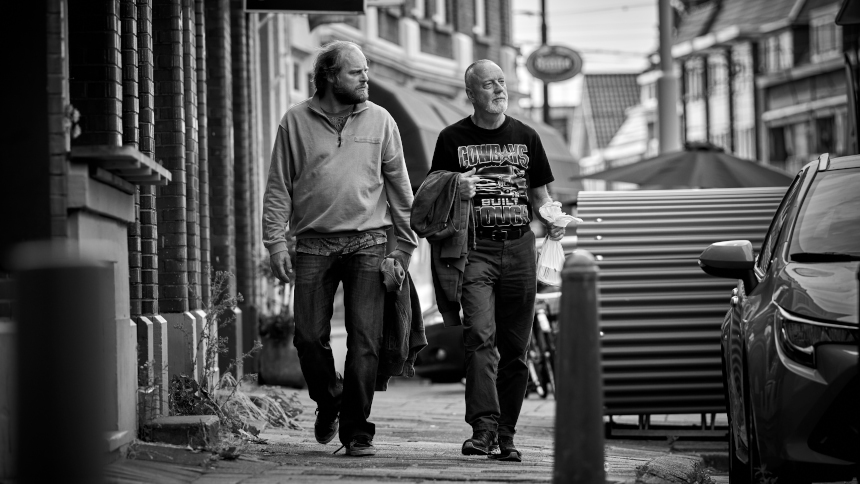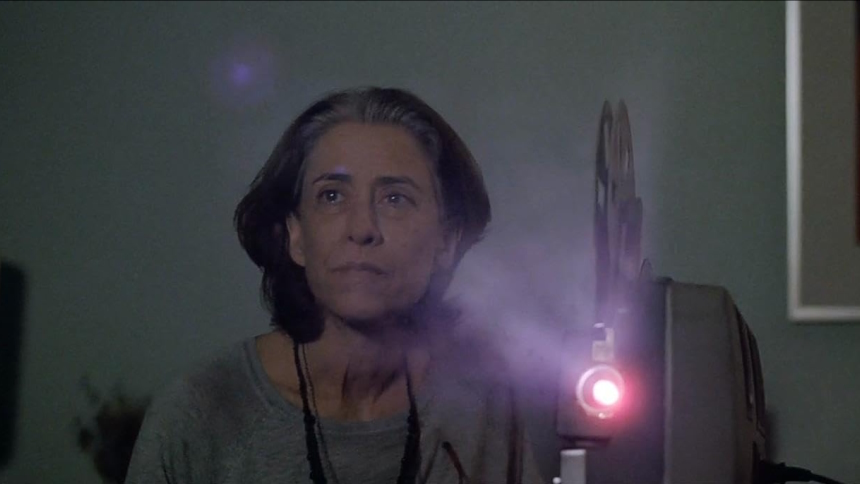Rotterdam 2025: What The Audiences Liked Best
Judging was done electronically: whenever a screening ended, the ticket buyers would receive an email with an invite to vote, with the following choices:
5: -very good
4: -good
3: -fair
2: -bad
1: -very bad
This system is of course flawed, as any rating of art is prone to be. While some things can be judged objectively (like technical merits), films consist of so much more, that subjective factors like tastes or preferences end up influencing the score just as much.
Therefore, though I love lists like these, you shouldn't put too much weight on the actual positions on the chart. The scores are often so close that the difference may have been one single vote. Maybe you could have made the difference, with a rating based on love or hate!
One thing I can say with a degree of certainty: any movie which ends with a higher mean average than 4.000 out of five is either a general crowdpleaser, or has marketed itself so well that it attracted precisely its perfect audience. So let's go to the list...





















After last year's festival had a decidedly low-budget look and feel, this year restored much of its original lustre. Press and Industry were back in their familiar locations in De Doelen, but more importantly: the programme felt a lot bigger. There were almost 500 titles to be seen, short and long. And as for quality: when Brady Corbet's The Brutalist ends up in the 50th place for the audience award (with a mean average of 4.131 out of 5), you can imagine there wasn't much to complain about...
I'm not going to list ALL of the 49 films that beat The Brutalist (you can go to the festival's own website for that...), but let's see what the top 20 looks like! Click on the edge of the pictures to scroll through them, or on the thumbnails to skip straight to a page!
19b: Rains over Babel (4.395 out of 5)
Remember I stated in the intro above that voting was close? Well, even though I use three numbers for the decimal part this year, we immediately hit a tie for 20th/19th place. If I had used two decimals like I did last year, we'd have had a four-way tie from 20th to 17th place...
So for those who yearn for an election in which your vote matters, look no further! One single vote would have made all the difference.
Anyways, enough about that. Rains over Babel is a beautiful, colorful film by Colombian/Spanish director Gala del Sol. In a bar, several stage performers, some in drag, meet a mythical, female-personified version of death. And each of them, in their own way, try to cheat a few more years of life out of her. In his review, Mel Valentin hails the film's exuberant looks and calls it "a singularly gripping experience".
19a: I Shall See (ALSO 4.395 out of 5)
In Dutch, the term "Ik Zal Zien" signifies more or less the same as "I Shall See" in English: it can either mean a determination to see something, or a statement that you'll just have to take what the future throws at you. In Mercedes Stalenhoef's film of the same name, a young woman suddenly loses her sight after a fireworks accident. The narrative is an honest look at her journey of accepting that the first meaning may never happen while the second one becomes more and more necessary. A hindrance in her progress are her dreams, in which she still sees...
Reviewers praised the cinematography and the honest look at suddenly being faced with a disability.
18: Where the Wind Comes From (4.400 out of 5)
Famous Tunesian photographer Amel Guellaty has finished her first feature film, and it premiered at Sundance and Rotterdam. The film tells the story of young and bored Alyssa, who jumps on the chance to move from Northern Africa to Europe. She also persuades her childhood friend Mehdi to come with her, but their friendship gets sorely tested during the journey.
17: Perla (4.404 out of 5)
In 1980's Vienna, artist Perla has built a life with her young daughter after having fled from communist Czechoslovakia. But when she receives news that her father Andrej is ill, she travels back across the border to confront her past. Czechoslovakia is dangerous for her though, and she needs to be very careful what she does and says. She is haunted by the question: is her attempted visit worth the risk of not seeing her daughter again?
Director Alexandra Makarová is from a family of artists who fled from Czechoslovakia to Vienna, and her film is praised for the way it shows the delicate issues troubling those communities.
16: Past Is Present (4.464 out of 5)
The famous Bangladeshi documentary filmmaker Shaheen Dill-Riaz has made a film about his family. "What's so special about that?" you might think, but in this case there is quite a lot going on. In 2007, Shaheen's sister secretly married his (and her) cousin while the two were studying in another country. Shaheen's parents were livid, and sadly, the event has torn the family in two distinct halves as its members, spread across the globe, took different sides.
Between his other projects, Shaheen has visited these family members and for fourteen years has documented their opinions, their lives away from Bangladesh, and their pain of being separated by the scandal. Using this footage, he tries to mediate between the different sides in this conflict, to bring some understanding and maybe mend the breach.
15: The Moromete Family 3: Father and Son (4.475 out of 5)
Romanian writer Martin Preda wrote two novels about a peasant family, the Morometes, and how they survive just before and after World War 2. Both novels were filmed by Romanian filmmaker Stere Gulea, in 1987 and 2018, and both films were huge domestic successes.
Gulea has now added a third film, loosely based on Martin Preda's own life. In it, the youngest son of the family, Niculae Moromete, tries in 1954 to write a novel about his family's history. But in the repressive Communis regime of that time, he needs to do it VERY carefully...
14: The Count of Monte-Cristo (4.480 out of 5)
Rotterdam occasionally features the odd swashbuckling blockbuster or two, and this year was no exception: we got a new, three-hours-long epic film adaptation of Alexandre Dumas’ revenge classic The Count of Monte-Cristo, directed by Matthieu Delaporte and Alexandre de La Patellière.
A man is unjustly thrown in prison, but he escapes, finds a treasure, and years later returns to France. Under a false identity and naming himself "the Count of Monte-Cristo", he uses his fortune to enact a terrible revenge on all who wronged him, while looking out for the woman he was separated from.
At three hours in length you might think this is a lot to take in, but the film has been an audience favorite ever since its première at Cannes last year.
13: An Unfinished Film (4.486 out of 5)
It takes guts to enter an unfinished film into a film festival and expect it to be accepted... except maybe when the unfinishedness of the film is actually what the film is about. Wait, what?
In 2019, Singaporean director Lou Ye went to Wuhan to finish a film he had started on ten years earlier, a project which had some footage but which had been shelved indefinitely. As the film seems to progress towards getting finished, the cast and crew suddenly find themselves on ground zero of the SARS-Covid 19 outbreak, literally the start of the pandemic.
As the production winds down (again) everyone finds themselves stuck in their hotels, unable to leave. In desperation, Ye tries to have at least some progress through editing whatever they have shot earlier and a decade before, but as the impact of the disease gets more and more severe, it seems as if the film doesn't want to be finished. The end result is super-odd but intriguing at the same time, a very strange mixture of narrative and documentary footage.
12: Beating Hearts (4.528 out of 5)
Here is the second French-language film in this list and again it is nearly three hours long. Released in Europe with the title L'Amour Ouf (which can mean both "Crazy Love" and "Love, Phew..."), it tells of a doomed love between Jackie, an upper-class girl and Clotaire, a lower-class criminal. After a short, torrential affair between the two rebellious youngsters, Clotaire is sentenced to jail for twelve years, but when he gets out he tries to be reunited with Jackie. Will he succeed? Not without loads of song and dance, because this is not just a drama, it is also a musical and a comedy!
A Belgian film by Gilles Lellouche, it stars François Civil and Adèle Exarchopoulos as the star-crossed lovers.
11: Quisling - The Final Days (4.544 out of 5)
Norway had a rather double role in World War 2. It briefly fought Germany but one of its political parties openly advocated to join Hitler. The leader of that party was Vidkun Quisling, and after the war he was executed as a collaborator. Indeed, in Europe his name is synonymous with betraying your country. If you do that, you'll be called a Quisling. Quite a legacy...
Pastor Peder Olsen had many interviews with Quisling in the days prior to his execution, and Olsen released a book about those conversations. Quisling never showed remorse for what he did, stating all his actions (including the active persecution of Jewish Norwegians) had been justified to ward off communism.
Filmmaker (and Rotterdam festival regular) Erik Poppe used Olsen's book to create a fictitious account of Quisling's last days, and it is considered very, very good, with a chilling central performance by Gard B. Eidsvold.
10: Half Moon (4.563 out of 5)
The war in Syria has brought many refugees to Europe, including the famous Damascus-born clarinettist and composer Kinan Azmeh. Dutch filmmaker Frank Scheffer decided to make a documentary about Azmeh, about his art, about being away from home, and how he struggles with his identity outside of Syria. And according to Rotterdam audiences, the result is great.
9: A Complete Unknown (4.574 out of 5)
Another film about a musician: this time James Mangold's biopic about a young Bob Dylan. In her review, our Shelagh Rowan-Legg says the following:
"If you know nothing about Bob Dylan (though I expect that is not the target audience), A Complete Unknown might not help too much in knowing more, since it assumes a certain amount of knowledge of the man and the other great figures in the story. If you know a little about him, this might help you learn a little more. If you know a lot, how much you like the film will depend on how important it is to you, that the film tell you something new, or something old from a different perspective. "
8: Fiume o Morte! (4.612 out of 5)
Croatian filmmaker Igor Bezinović makes weird documentaries, but they are FUN weird documentaries and his latest is a fine example. A century ago, Italy owned some settlements on the East side of the Adriatic Sea. One of these, the city Fiume, was supposed to be given to (then) Yugoslavia, but in 1919 outraged Italian fascists led by the aristocratic poet Gabriele D’Annunzio took the town and occupied it as a rogue army for sixteen months.
Bezinović's film tells this story but the way he does it is extremely playful, reenacting several historic moments by using good-humored locals. His method manages to bring the messages home while being very entertaining to watch. In his review, our Martin Kudlac says:
"Bezinović's fresh approach makes the psychogeographic history lesson from Rijeka lively, engaging, and relevant, which, similar to Jude's pricklier satires, can find its audience even outside the arthouse crowd."
7: The Last Dance (4.634 out of 5)
In Anselm Chan Mou Yin's comedy drama, wedding planner Dominic almost goes bankrupt during the Covid pandemic, but luckily he has a share in a funeral parlour, which of course does booming business at the same time. By updating the procedures a bit, Dominic manages to make the funeral parlour a financial success, but he butts heads frequently with his partner, an old Taoist priest who sees any kind of change as sacrilegious interference. As tempers flare, the two need to find a way to reconcile their different world-views.
6: Memoir of a Snail (4.646 out of 5)
Animation is a bit under-represented in this top-20, but Adam Elliot comes to the rescue with his latest stop-motion extravaganza, which is about self-pity. In my review, I said the following:
"The film's saving grace is not actually its dour protagonist Grace, nor its stellar animation, but the constant stream of caustic satire and adult jokes which are peppered throughout. The narrative itself may not be all that interesting, quite repetitive even, but the situations and side-steps are often hilarious, and Adam Elliot leaves no chance unused to criticize Australian laws and institutions. Child Welfare in particular gets a few vicious kicks. In contrast, the character of Grace's optimistic friend Pinky shines like a beacon in the film, and the flashbacks with her provide Memoir of a Snail with its most memorable moments, lewd and otherwise (seriously, a kiddie film this is not)."
5: The Last Journey (4.696 out of 5)
Swedish TV host Filip Hammar noticed that his 80-year-old father wasn't leaving the house much any more, due to several illnesses and being old, and decided that the two should revisit several places they went on holiday to in the past.
The result is this film, a sweet documentary about the passing of time and becoming old, leavened with a lot of dry humor from all involved.
4: The Seed of the Sacred Fig (4.727 out of 5)
One of the most talked about films of the festival is Iranian director Mohammed Rasolouf's latest, in which he shows what happens within a judge's family when the man gets promoted to be an investigating judge in the Revolutionary Court in Tehran. This happens when most of Iran protests the death of a female prisoner, and the judge is supposed to sign off on death warrant after death warrant, as more and more protesters are arrested. Rasolouf himself barely escaped Iran himself, and several of the actors in the film are not allowed to leave the country, themselves now under investigation by the regime.
This all adds an extra punch to a film which didn't need any, as it can easily stand on its own. Our Olga Artemyeva says in her review:
"Aesthetically, Rasolouf mostly sticks to his usual style that is bold and decidedly unsubtle. Unlike many of his colleagues, he almost never speaks Aesopian language, and with the exception of the very telling title and the use of the very symbolic gun, doesn’t really rely on allegories. Instead, the raw footage of the actual protests is included here, once again proving that not a lot of things can feel more surreal than reality itself."
3: The Investigation (4.761 out of 5)
In 1965, German playwright Peter Weiss made a four-hour-long stage play called 'Die Ermittlung', and it is considered to be one of the greatest pieces of art dedicated to the Holocaust. It basically is an endless series of witness accounts before a court, but as time wears on and the stories seem to become repetitive, sudden small changes in the accounts start having big effects.
Actor and filmmaker Rolf Peter Kahl (better known as RP Kahl) made a film version by basically filming the stage play, with a selection of famous German actors playing different roles. And apparently it is very, VERY good.
2: Three Days of Fish (4.773 out of 5)
A Dutch 'dramady' shot in black and white, director Peter Hoogendoorn's Drie Dagen Vis a.k.a. Three Days of Fish was one of the biggest surprises of this year's festival. The film follows Gerrie Molendijk (played by Ton Kas, excellent as always), an older Dutch guy who lives in Portugal but frequently visits the Netherlands for check-ups on his lung disease. As he is makes arrangements to live in Portugal indefinitely, he tries to reconnect with his bumbling son while staying in Rotterdam for three days, but the two have always had big communication problems so it doesn't exactly go smoothly.
1: I'm Still Here (4.811 out of 5)
As the festival proceeded this year, its top-3 in the audience ratings shifted wildly. Basically, any movie in the top-7 had a decent chance to end up as the final number one, because the differences in average mean ratings were so small, a few votes in a single screening would change the list already.
But in the end, Walter Salles' disappearance drama I'm Still Here won, the only film to breach the 4.8 barrier this year. It might win an Oscar for best film this evening (or best Non-English spoken Film at least), and actress Fernanda Torres can also win one. All would be justified.
In 1970, Brazil was ruled as a military dictatorship, and the film shows what happened in the Pavia household in Rio after the father of the family, Rubens Pavia, was asked to answer a few questions at the police station and subsequently disappeared. Rubens' son wrote a book about that difficult time in their lives, and the heroic role mother Eunice played. Walter Salles' film is an excellent take on that book. In my review, I said the following:
"Director Walter Salles chooses to focus totally on the family, making Rubens disappear from us, the audience, as well. No torture scenes are shown, we are as much in the dark as his family is. And because he is very much present in the first part of the film, he is very much missed in the remainder of it. It is a non-sensational approach which, in contradiction, works sensationally well. For two hours, you live with these people, and their struggles are yours.
I'm Still Here is also not just a voyage into despair. You see the family suffer, but you also share in their resilience and stubbornness. Eunice Pavia became a world famous fighter for human rights, defending the Amazon rainforest and the tribes living in them, and remained a thorn in the side of right-wing political parties for her entire life. Stick around for the end credits too, as the film is full of photographs, family snapshots, several of which are important to the story. When the end titles run, you get to see how carefully these were all reproduced, as you are shown the originals with the real Rubens, the real Eunice, and their real children.
One of the most powerful films I have seen on the subject, treating it with respect and intimacy, I'm Still Here is a punch to the gut, but a good one."
Nice to know the general audiences in Rotterdam agreed with me. And that concludes the top 20 this year!
(UPDATE: I'm Still Here did actually end up winning the Oscar for best non-English film.)

More about What The Audiences Liked Best
More about I'm Still Here (2024)
More about The Seed of the Sacred Fig
- DFW Film Critics Choose ANORA as Best Film of 2024
- European Film Awards 2024: Mohammad Rasoulof on THE SEED OF THE SACRED FIG, Political Cinema, Censorship, and Artistic Resilience
- THE SEED OF THE SACRED FIG Review: Bold and Decidedly Unsubtle
- New York 2024 Review: THE SEED OF THE SACRED FIG, Striking Tale of Violence and Moral Compromises
More about Memoir of a Snail
More about Fiume O Morte!
More about A Complete Unknown
Around the Internet
Recent Posts
ALL THE PRESIDENT'S MEN 4K UHD Review: Deeper with Special Features
UNDERTONE: Hear it Early in a Dolby Cinema
Leading Voices in Global Cinema
- Peter Martin, Dallas, Texas
- Managing Editor
- Andrew Mack, Toronto, Canada
- Editor, News
- Ard Vijn, Rotterdam, The Netherlands
- Editor, Europe
- Benjamin Umstead, Los Angeles, California
- Editor, U.S.
- J Hurtado, Dallas, Texas
- Editor, U.S.
- James Marsh, Hong Kong, China
- Editor, Asia
- Michele "Izzy" Galgana, New England
- Editor, U.S.
- Ryland Aldrich, Los Angeles, California
- Editor, Festivals
- Shelagh Rowan-Legg
- Editor, Canada


